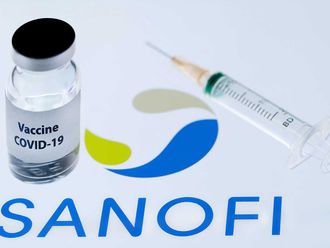London: Nestle became the third European food company to report better-than-expected first-quarter sales on Friday, adding to evidence that the sector is moving past the troubles of 2014.
Last year, makers of consumer packaged goods were hammered by slowed economies, including in once-hot markets such as Brazil and China.
Conditions remain tough, executives say, with volatility in currency and commodity costs and consumer sentiment under pressure, but there are early signs of improved performance.
“Another European food Q1 sales reporting, another beat to consensus expectations now 3 in 3 days,” said Bernstein analysts, referring to reports from Unilever and Danone, which sent their shares to record highs this week.
Nestle shares were flat on Friday, having already gained on the heels of the other reports. Plus, Bernstein said Nestle’s beat was “slightly less compelling”, with “some worries and disappointments too”.
The Swiss maker of Nescafe coffee, KitKat bars and Perrier water reported organic sales growth of 4.4 per cent, versus an analysts’ average estimate of 4.3 per cent in a Reuters poll.
Price increases were responsible for 2.5 percentage points of that growth. The company pointed to increases in Latin America and two countries in Eastern Europe and said the deflation that has pressured Europe as a whole in recent quarters had eased “very slightly”.
The amount of goods sold rose 1.9 per cent, below analysts’ estimates for a gain of 2.17 per cent.
Volume fell in the Americas region, where Nestle is working to stem declines of its frozen foods with new recipes, packaging and advertising.
Nestle said it has seen positive signs in its Stouffer’s brand, and hopes to see more meaningful improvement in other brands, including Lean Cuisine and Digiorno, this year.
Organic sales grew 2.5 per cent in developed markets and 6.7 per cent in emerging markets.
Overall, first-quarter revenue rose 0.5 per cent to 20.9 billion Swiss francs ($21.85 billion). Currency exchange rates, particularly a strong Swiss franc, reduced reported sales by 4.5 per cent.
In February, Nestle predicted organic sales growth of around 5 per cent this year, which is at the low end of its long-term model of 5 to 6 per cent growth.
On Friday it affirmed that target, forecasting also improvements in margins, underlying earnings per share in constant currencies and capital efficiency.












